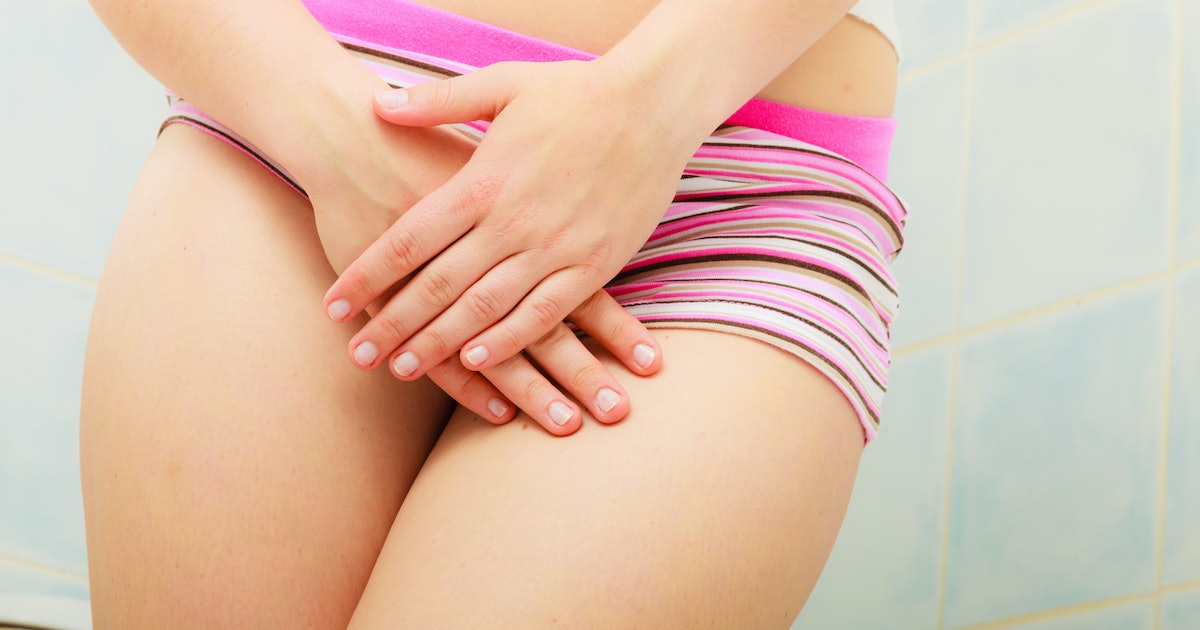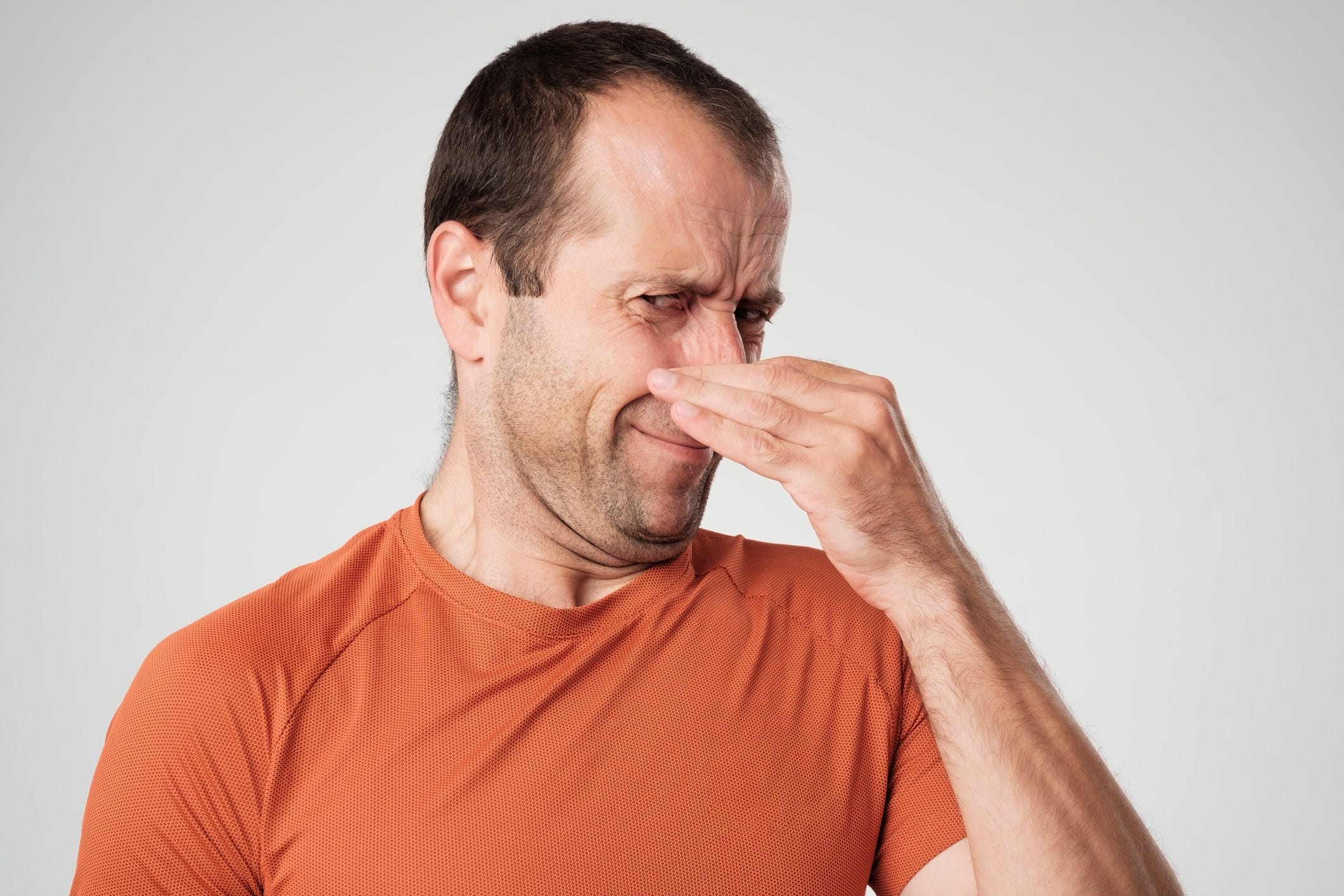

FAQs
Why Is My Underwear Always Wet And Smells
Published: July 31, 2023
Discover why your underwear is always wet and smells with answers to general questions about this common issue.
(Many of the links in this article redirect to a specific reviewed product. Your purchase of these products through affiliate links helps to generate commission for Under-tec.com, at no extra cost. Learn more)
Table of Contents
- Why Is My Underwear Always Wet And Smells
- Introduction
- Common Causes of Wetness and Odor
- Excessive Sweating
- Urinary Incontinence
- Vaginal Discharge or Infection
- Excessive Discharge from Anal Glands
- Menstrual Blood Leakage
- Lack of Breathable Fabrics
- Improper Hygiene Practices
- Medical Conditions
- Tips for Preventing Wetness and Odor
- Conclusion
Why Is My Underwear Always Wet And Smells
Many people find themselves wondering why their underwear is consistently wet and emitting an unpleasant odor. This can be a frustrating and embarrassing issue to deal with. While occasional wetness and odor are common, a persistent problem can indicate an underlying issue that needs to be addressed. Several factors can contribute to this problem, including excessive sweating, urinary incontinence, vaginal discharge or infection, excessive discharge from anal glands, menstrual blood leakage, lack of breathable fabrics, improper hygiene practices, and certain medical conditions.
Excessive sweating, also known as hyperhidrosis, can lead to wet underwear. When the body produces more sweat than necessary to regulate body temperature, it can accumulate in the undergarments, causing wetness and odor. Dealing with excessive sweating may require lifestyle changes, such as wearing loose-fitting clothing and using antiperspirants or specific medical treatments.
Urinary incontinence, the involuntary leakage of urine, is another common cause of wet underwear. This condition can affect people of all ages and genders, and it can be caused by various factors, including weakened pelvic floor muscles, hormonal changes, urinary tract infections, and certain medications. Managing urinary incontinence may involve exercises to strengthen the pelvic floor, lifestyle modifications, and in some cases, medical interventions.
Vaginal discharge or infection can also contribute to wetness and odor in underwear. Normal vaginal discharge helps keep the vagina clean and lubricated, but an overproduction of discharge or changes in its consistency can indicate an infection or other underlying condition. Proper hygiene practices, such as regular washing and avoiding irritants, can help prevent vaginal infections and minimize potential odor.
Excessive discharge from the anal glands is another factor that can result in wetness and odor in underwear. These glands, located near the anus, produce a small amount of fluid that helps lubricate the area during bowel movements. However, when the glands become blocked or infected, they can release excess fluid, leading to wetness and a foul smell. In such cases, veterinary attention may be necessary for pets to alleviate the problem.
Menstrual blood leakage is often a culprit behind wet and odorous underwear for individuals who menstruate. It can happen due to inadequate absorption from sanitary products or improper positioning of pads or tampons. Using the right-sized menstrual products and changing them regularly is essential for preventing leaks and maintaining fresh underwear.
The type of fabric used in underwear can also contribute to wetness and odor. Synthetic materials like polyester or nylon trap moisture, creating a humid environment that promotes bacterial growth and unpleasant smells. Opting for underwear made from breathable fabrics like cotton allows air circulation and helps keep the area dry and odor-free.
Improper hygiene practices, such as not washing underwear regularly or using harsh soaps or laundry detergents, can also contribute to persistent wetness and odor. It is important to wash underwear with mild, fragrance-free detergents and change them daily to minimize bacterial buildup and odor.
In some cases, persistent wetness and odor can be a sign of an underlying medical condition. Conditions like bacterial vaginosis, yeast infections, urinary tract infections, or hormonal imbalances may require medical intervention and treatment. It is essential to consult a healthcare professional for an accurate diagnosis and appropriate management.
While it is normal to experience occasional wetness and odor, constantly dealing with this issue can be bothersome. Following proper hygiene practices, wearing breathable fabrics, and addressing any underlying medical conditions can help prevent persistent wetness and odor. If the problem persists despite these efforts, it is best to consult a healthcare professional for further evaluation and guidance.
Introduction
Dealing with consistently wet underwear that emits an unpleasant odor can be a frustrating and embarrassing problem. It can leave you feeling uncomfortable and self-conscious throughout the day. While occasional wetness and odor are normal, persistent issues can indicate an underlying issue that needs to be addressed.
There are several factors that can contribute to wetness and odor in underwear. Excessive sweating, urinary incontinence, vaginal discharge or infection, excessive discharge from anal glands, menstrual blood leakage, lack of breathable fabrics, improper hygiene practices, and certain medical conditions can all play a role in this persistent problem.
Excessive sweating, or hyperhidrosis, can lead to wet underwear. When the body produces more sweat than necessary to regulate body temperature, it can accumulate in the undergarments, causing wetness and a distinct odor. This condition may require lifestyle changes or medical treatments to manage the excess sweating.
Urinary incontinence, the involuntary leakage of urine, is another common cause of wet underwear. It can affect individuals of all ages and genders and can be caused by weakened pelvic floor muscles, hormonal changes, urinary tract infections, and certain medications. Managing urinary incontinence may involve exercises to strengthen the pelvic floor, lifestyle modifications, and in some cases, medical interventions.
Vaginal discharge or infection can also contribute to wetness and odor in underwear. While normal vaginal discharge helps keep the vagina clean and lubricated, an overproduction of discharge or changes in its consistency can indicate an infection or other underlying condition. Practicing proper hygiene and seeking medical attention for infections can help prevent persistent wetness and odor.
Excessive discharge from the anal glands is another factor that can result in wetness and odor in underwear. These glands, located near the anus, produce a small amount of fluid to help lubricate the area during bowel movements. When these glands become blocked or infected, they can release excess fluid, leading to wetness and a foul smell. In such cases, veterinary attention may be necessary for pets to alleviate the problem.
Menstrual blood leakage is often a culprit behind wet and odorous underwear for individuals who menstruate. Inadequate absorption from sanitary products or improper positioning of pads or tampons can contribute to leaks. Using the right-sized menstrual products and changing them regularly is crucial for preventing leaks and maintaining freshness.
The fabric used in underwear can also play a role in wetness and odor. Synthetic materials like polyester or nylon trap moisture, creating a humid environment that promotes bacterial growth and unpleasant smells. Opting for underwear made from breathable fabrics like cotton allows air circulation and helps keep the area dry and odor-free.
Improper hygiene practices, such as infrequent washing or using harsh soaps and detergents, can also contribute to persistent wetness and odor. Regularly washing underwear with mild, fragrance-free products and changing them daily can minimize bacterial buildup and odor.
In some cases, persistent wetness and odor may be a sign of an underlying medical condition. Conditions like bacterial vaginosis, yeast infections, urinary tract infections, or hormonal imbalances may require medical intervention and treatment. Seeking advice from a healthcare professional is crucial for an accurate diagnosis and appropriate management.
While occasional wetness and odor are normal, dealing with consistent issues can be bothersome. By following proper hygiene practices, wearing breathable fabrics, and addressing any underlying medical conditions, it is possible to prevent persistent wetness and odor. If the problem persists despite these efforts, it is recommended to consult a healthcare professional for further evaluation and guidance.
Common Causes of Wetness and Odor
There are several common causes of wetness and odor in underwear. Understanding these causes is essential to effectively address the issue and prevent further discomfort.
One of the main causes is excessive sweating, also known as hyperhidrosis. When the body produces an excessive amount of sweat, it can accumulate in the undergarments, leading to wetness and a distinct odor. Factors such as high room temperature, intense physical activity, stress, or certain medical conditions can contribute to excessive sweating.
Urinary incontinence is another common cause of wet underwear. This condition refers to the involuntary leakage of urine, which can occur due to weakened pelvic floor muscles, hormonal changes, urinary tract infections, or certain medications. The wetness and odor in underwear experienced by individuals with urinary incontinence can be distressing and require management strategies.
Vaginal discharge or infection can also contribute to wetness and odor. Normal vaginal discharge helps maintain the pH balance and cleanliness of the vagina. However, an overproduction of discharge or changes in its color, consistency, or smell can indicate an infection or other underlying issues. Vaginal infections such as yeast infections or bacterial vaginosis can result in increased discharge and an unpleasant odor.
Excessive discharge from the anal glands is another possible cause of wetness and odor in underwear, particularly in pets. Anal glands are small sacs near the anus that produce a smelly fluid, which is normally released during bowel movements. When these glands become blocked or infected, they can release excess fluid, leading to wetness and a foul smell.
Menstrual blood leakage is a common issue for individuals who menstruate. It can result from inadequate absorption from menstrual products or incorrect positioning of pads, tampons, or menstrual cups. Leaks can occur due to heavy flow, overnight use, or failure to change menstrual products regularly.
The choice of underwear fabric can also contribute to wetness and odor. Synthetic fabrics like polyester or nylon can trap moisture, creating a humid environment that promotes bacterial growth and unpleasant smells. Opting for underwear made from breathable fabrics like cotton allows for better air circulation, keeping the area drier and reducing odor.
Improper hygiene practices can also play a role in wetness and odor. Failing to wash underwear regularly, using harsh soaps or detergents, or not changing underwear frequently enough can lead to bacterial overgrowth and odors. It is important to practice good hygiene habits, such as washing underwear with mild, fragrance-free detergents and changing them daily.
While these are the most common causes of wetness and odor, it is important to note that other medical conditions or factors may contribute to the problem. It is crucial to consider individual circumstances and consult a healthcare professional if the issue persists or is accompanied by other symptoms.
Excessive Sweating
Excessive sweating, also known as hyperhidrosis, can be a common cause of wetness and odor in underwear. When the body produces more sweat than necessary to regulate body temperature, it can lead to damp undergarments and an unpleasant smell.
The causes of excessive sweating can vary. Some people may experience it due to high room temperature, intense physical activity, stress, anxiety, or certain medical conditions. It can occur in specific areas of the body, such as the underarms, palms, or feet, or it may affect the entire body.
When excessive sweating affects the undergarments, it can lead to wetness and discomfort throughout the day. The accumulated sweat creates a moist environment that promotes the growth of bacteria, resulting in odor. This can leave individuals feeling self-conscious and concerned about their personal hygiene.
Managing excessive sweating can involve a combination of lifestyle changes and medical treatments. Here are some strategies that can help reduce wetness and odor in underwear:
- Wear loose-fitting, breathable clothing: Opt for clothing made from natural fibers like cotton, linen, or bamboo, which allow for better air circulation and help keep the body cooler.
- Choose moisture-wicking underwear: Look for underwear specifically designed to wick away moisture from the body, keeping you drier and preventing dampness in the undergarments.
- Use antiperspirants: Applying antiperspirants to the underarms or other areas prone to excessive sweating can help reduce sweat production. Look for antiperspirants that contain aluminum chloride or aluminum chloride hexahydrate.
- Try clinical-strength antiperspirants: If regular antiperspirants are not effective, consider using clinical-strength antiperspirants, which contain a higher concentration of active ingredients to block sweat production.
- Manage stress: Stress can trigger excessive sweating. Engaging in stress-reducing activities such as exercise, meditation, or deep breathing exercises can help control sweating episodes.
- Consider Botox injections: In severe cases of hyperhidrosis, Botox injections can be used to temporarily block the nerves responsible for sweat production. This treatment is typically reserved for individuals who have not responded to other treatments and is administered by a healthcare professional.
- Explore iontophoresis: Iontophoresis is a treatment that uses a device to deliver a low-level electrical current to the affected area, such as the hands or feet. This therapy temporarily blocks the sweat glands and can provide relief for excessive sweating.
- Consult a healthcare professional: If excessive sweating persists despite trying lifestyle changes and over-the-counter remedies, it is advisable to consult a healthcare professional. They can assess the situation, perform any necessary tests, and recommend appropriate medical treatments, such as prescription antiperspirants or oral medications.
Remember, managing excessive sweating is a personal journey, and what works for one person may not work for another. It may require some trial and error to find the most effective strategies for controlling wetness and odor in underwear. With patience and guidance from healthcare professionals, individuals can find relief and regain their confidence.
Urinary Incontinence
Urinary incontinence is a common condition that can lead to wetness and odor in underwear. It refers to the involuntary leakage of urine, and it affects individuals of all ages and genders. While it can be a frustrating and embarrassing issue to deal with, there are strategies and treatments available to manage urinary incontinence and minimize its impact on underwear.
There are several causes of urinary incontinence, including weakened pelvic floor muscles, hormonal changes, urinary tract infections, certain medications, and underlying medical conditions. Depending on the cause and severity, there are different types of urinary incontinence, including stress incontinence (leakage during activities that put pressure on the bladder), urge incontinence (strong and sudden urge to urinate), overflow incontinence (incomplete emptying of the bladder), and mixed incontinence (combination of different types).
When urinary incontinence occurs, it can result in wetness and odor in underwear. The amount of leakage can vary from a few drops to larger amounts, depending on the individual and the specific type of incontinence. Dealing with wet underwear can be uncomfortable and may lead to feelings of self-consciousness.
Managing urinary incontinence involves a multi-faceted approach that may include the following strategies:
- Pelvic floor exercises: Strengthening the pelvic floor muscles can help improve bladder control and reduce instances of leakage. Exercises, such as Kegels, can be beneficial in preventing or reducing urinary incontinence. It is important to learn the proper technique and perform these exercises regularly for optimal results.
- Lifestyle modifications: Certain lifestyle choices may contribute to urinary incontinence. Making changes such as maintaining a healthy weight, avoiding bladder irritants (such as caffeine and alcohol), and practicing timed voiding (regularly scheduled trips to the bathroom) can help manage symptoms and reduce wetness and odor in underwear.
- Bladder training: Training the bladder involves gradually increasing the time between bathroom visits to improve bladder capacity and control. This technique can be effective in managing urge incontinence.
- Medications: In some cases, healthcare professionals may prescribe medications that help relax the bladder muscles or control bladder contractions. These medications can help reduce episodes of urinary incontinence and minimize wetness in the underwear.
- Pessary or devices: For individuals with specific types of urinary incontinence, using a pessary or other devices can provide support to the pelvic organs and help prevent leakage.
- Surgical interventions: In more severe cases or when conservative treatments fail, surgical interventions may be considered. These procedures aim to restore or improve bladder control and reduce urinary incontinence.
- Protective underwear or pads: Using absorbent products such as protective underwear, pads, or liners can help manage leakage and minimize wetness and odor in underwear. These products are available in various sizes and absorbency levels to suit different needs.
It is important to remember that urinary incontinence is a treatable condition, and individuals should not hesitate to seek help from healthcare professionals. They can provide an accurate diagnosis, recommend appropriate treatments, and suggest lifestyle modifications to manage urinary incontinence effectively.
By implementing these strategies and seeking professional guidance, individuals with urinary incontinence can regain control over their bladder, minimize wetness and odor in underwear, and improve their overall quality of life.
Vaginal Discharge or Infection
Vaginal discharge is a normal and healthy occurrence in women. It plays a crucial role in maintaining vaginal health by keeping the vagina clean and lubricated. However, an overproduction of discharge or changes in its color, consistency, or smell can indicate an infection or other underlying issues. These changes can contribute to wetness and odor in underwear.
There are several causes of abnormal vaginal discharge or infection. Bacterial vaginosis, yeast infections, sexually transmitted infections, hormonal imbalances, and certain medications can all disrupt the natural balance of vaginal flora and cause changes in discharge characteristics.
When vaginal discharge becomes excessive or takes on an abnormal appearance, it can result in wetness and discomfort in underwear. The abnormal discharge may have a strong, unpleasant odor, which can be a sign of an infection that needs to be addressed.
Managing vaginal discharge or infection involves identifying the underlying cause and seeking appropriate treatment. Here are some strategies to consider:
- Practice good hygiene: Proper hygiene plays a crucial role in preventing and managing vaginal infections. It is important to wash the genital area with gentle, fragrance-free soap and water, and to avoid using harsh products or douching, as this can disrupt the natural balance of vaginal flora.
- Wear breathable cotton underwear: Opt for underwear made from breathable fabrics, such as cotton, which allows air circulation and helps keep the vaginal area dry and free from excessive moisture.
- Avoid irritants: Avoid using products that can irritate the vaginal area, such as scented pads, tampons, or vaginal sprays. These can disrupt the natural pH balance and contribute to infection or inflammation.
- Seek medical attention: If abnormal discharge is persistent, accompanied by itching, burning, or other discomfort, it is important to seek medical attention. A healthcare professional can perform an examination, order tests if necessary, and provide proper diagnosis and treatment.
- Treat underlying infections: Depending on the type of infection, healthcare professionals may prescribe antifungal or antibiotic medications to address the underlying cause. It is essential to follow the prescribed treatment regimen to effectively manage the infection and prevent further complications.
- Practice safe sex: Using barrier methods such as condoms can help reduce the risk of sexually transmitted infections (STIs) that can cause abnormal discharge or vaginal infections. It is important to have open and honest communication with sexual partners about sexual health and get regularly tested for STIs.
- Consider probiotics: Probiotics, either through supplements or yogurt containing live cultures, may help restore a healthy balance of vaginal flora. However, it is essential to consult with a healthcare professional before starting any supplementation.
It is important to remember that vaginal discharge may vary throughout the menstrual cycle. However, if the discharge is persistently abnormal, excessive, or accompanied by other symptoms, it is advisable to seek medical advice. By addressing the underlying cause and following proper hygiene practices, individuals can effectively manage vaginal discharge or infection, reduce wetness and odor in underwear, and maintain vaginal health.
Excessive Discharge from Anal Glands
Excessive discharge from the anal glands can contribute to wetness and odor in underwear, particularly in pets. Anal glands are small sacs located near the anus that produce a smelly fluid. This fluid is normally released during bowel movements to help lubricate the area, but when the anal glands become blocked or infected, they can release excess fluid, leading to wetness and a distinctive foul smell.
In pets, excessive discharge from the anal glands can be a cause for concern. The odor can be strong and pervasive, and the wetness in the anal area can be uncomfortable and unhygienic. Pets may also exhibit signs of discomfort, such as scooting or excessively licking the anal area.
Addressing excessive discharge from anal glands in pets typically requires veterinary attention. Here are some management strategies that may be recommended:
- Expressing the anal glands: Veterinarians can manually express the anal glands to release the accumulated fluid. This procedure should only be performed by a trained professional.
- Dietary changes: Sometimes, dietary adjustments may be recommended to address the underlying cause of anal gland issues in pets. This can include increasing fiber intake, which can help promote regular bowel movements and prevent the anal glands from becoming blocked or infected.
- Managing allergies or infections: Allergies or infections in the anal area can contribute to anal gland issues. In these cases, identifying and managing the underlying cause, such as food allergies or skin infections, is essential to controlling the excessive discharge.
- Surgical intervention: In severe or chronic cases where conservative management strategies have been ineffective, surgical intervention may be considered. This can involve the removal of the anal glands to prevent recurring issues.
It is important to consult a veterinarian if a pet is experiencing excessive discharge from the anal glands. They can assess the situation, determine the underlying cause, and recommend appropriate treatment options.
For humans, excessive discharge from the anal glands is relatively rare. However, if individuals experience persistent wetness and an unpleasant smell in the anal area, it is advisable to consult a healthcare professional for an accurate diagnosis and appropriate management.
Remember, managing excessive discharge from anal glands requires professional attention, whether it is for pets or humans. Seeking veterinary or medical advice can help identify the underlying cause and address the issue effectively, reducing wetness and odor in underwear and promoting the overall well-being of the affected individual.
Menstrual Blood Leakage
Menstrual blood leakage is a common issue for individuals who menstruate and can contribute to wetness and odor in underwear. It occurs when menstrual blood escapes the confines of menstrual products and stains clothing, leading to discomfort and potential embarrassment.
There are several factors that can contribute to menstrual blood leakage, including the heaviness of the menstrual flow, improper positioning or inadequate absorption of menstrual products, and individual anatomical variations. It is essential to address these factors to prevent leaks and maintain cleanliness.
Here are some strategies to help manage menstrual blood leakage:
- Choose the right-sized menstrual products: Using menstrual products that are appropriate for your flow and provide sufficient absorbency is crucial. Additionally, ensuring proper positioning of pads, tampons, or menstrual cups is essential to prevent leakage. Trying different products and exploring different brands can help find the best fit.
- Consider using menstrual underwear or period-proof garments: Menstrual underwear is designed with built-in absorbency to provide an extra layer of protection against leaks. These garments can be worn alone or as a backup to traditional menstrual products.
- Change menstrual products regularly: Regularly changing menstrual products is important to prevent saturation and leakage. The frequency of changing will vary depending on the heaviness of the flow, but it is generally recommended to change pads every 4-6 hours and tampons every 4 hours.
- Use additional protection at night: Overnight leakage can be a common problem for individuals with heavy flows. Using overnight pads or wearing menstrual underwear specifically designed for nighttime use can provide extra protection and prevent leaks during sleep.
- Track your menstrual cycle: Understanding your menstrual cycle can help anticipate heavier flow days and be prepared with the right products. Tracking tools or apps can be useful to monitor your cycle and make informed decisions about menstrual product usage and changes.
- Consider menstrual product alternatives: Some individuals find alternative menstrual products, such as menstrual cups or period discs, to be more effective in preventing leaks. These options may require a learning curve but can provide a reliable and eco-friendly solution for managing menstrual blood leakage.
- Seek healthcare professional guidance: If you experience persistent and excessive menstrual blood leakage that is interfering with your daily activities or causing significant discomfort, it is advisable to consult a healthcare professional. They can assess your specific situation, rule out any underlying medical conditions, and provide appropriate guidance and treatment.
Managing menstrual blood leakage requires finding the right combination of products and strategies that work for each individual. It may involve some trial and error, but by being proactive and exploring different options, individuals can minimize leaks, maintain freshness in their underwear, and enhance their overall comfort during menstruation.
Lack of Breathable Fabrics
The lack of breathable fabrics in underwear can contribute to wetness and odor. When undergarments are made from non-breathable materials, such as synthetic fabrics like polyester or nylon, moisture gets trapped against the skin, creating a humid environment that promotes bacterial growth and unpleasant smells.
Breathable fabrics, on the other hand, allow air circulation and help keep the area dry. Cotton is one of the most commonly recommended breathable fabrics for underwear due to its ability to absorb moisture and allow for evaporation.
Here are some reasons why lack of breathable fabrics can lead to wetness and odor in underwear:
- Moisture accumulation: Non-breathable fabrics do not allow for proper moisture absorption and evaporation. As a result, sweat and other bodily fluids can accumulate in the underwear, leading to persistent wetness.
- Bacterial growth: The humid environment created by non-breathable fabrics provides the ideal conditions for bacteria to thrive. Bacteria feed on the moisture and produce byproducts that contribute to unpleasant odors.
- Irritation and discomfort: Lack of breathability can cause skin irritation, itching, and discomfort. The constant exposure to trapped moisture can lead to rashes, fungal infections, or other skin conditions.
- Increased risk of infections: The moisture-laden environment created by non-breathable fabrics can increase the risk of developing urinary tract infections, yeast infections, or bacterial vaginosis.
- Persistent odor: As bacteria multiply and thrive in the non-breathable fabric, they produce foul-smelling byproducts that can lead to an unpleasant odor in underwear.
Choosing underwear made from breathable fabrics can help minimize wetness and odor. Here are some tips to consider:
- Opt for cotton underwear: Cotton is a natural breathable fabric that allows air circulation and promotes moisture evaporation. Look for underwear made from 100% cotton for optimal breathability.
- Avoid synthetic materials: Synthetic materials like polyester or nylon trap moisture against the skin and hinder evaporation. Minimize or avoid wearing underwear made from these materials, especially during activities that may cause increased sweating.
- Consider moisture-wicking fabrics: Some underwear options are specifically designed with moisture-wicking properties. These fabrics pull moisture away from the skin and allow it to evaporate more easily.
- Choose loose-fitting styles: Opt for underwear styles that are not too tight, as snug-fitting underwear can limit airflow and promote moisture retention.
- Follow proper hygiene practices: Regardless of the fabric, practicing good hygiene is essential. Regularly change and wash underwear with mild, fragrance-free detergents to reduce bacterial buildup and maintain freshness.
By choosing underwear made from breathable fabrics like cotton, individuals can help minimize wetness and odor, promote better airflow, and maintain a drier and more comfortable experience throughout the day.
Improper Hygiene Practices
Improper hygiene practices can contribute to wetness and odor in underwear. Inadequate cleaning or using harsh soaps and detergents can disrupt the natural balance of the vaginal and anal areas, leading to bacterial overgrowth and unpleasant smells.
Here are some reasons why improper hygiene practices can result in wetness and odor in underwear:
- Inadequate washing: Failing to wash the genital area regularly can lead to the buildup of sweat, bacteria, and bodily fluids, which can cause wetness and odor in underwear.
- Using harsh soaps or detergents: Using harsh soaps or detergents with fragrance or chemicals can irritate the sensitive skin in the genital area. This can disrupt the natural pH balance and lead to bacterial overgrowth, resulting in persistent wetness and odor.
- Infrequent underwear changes: Wearing the same underwear for extended periods allows for the accumulation of sweat, bacteria, and other bodily fluids. This can create an environment conducive to bacterial growth and result in persistent wetness and odor.
- Not allowing underwear to fully dry: Putting on underwear before it is completely dry can trap moisture against the skin, leading to a humid environment that promotes bacterial growth and unpleasant smells.
- Using scented or irritating products: Scented pads, tampons, or vaginal sprays can disrupt the natural balance of the vaginal area and contribute to wetness and odor. These products often contain chemicals that can irritate the delicate skin and mucous membranes.
To prevent wetness and odor in underwear caused by improper hygiene practices, it is important to follow these tips:
- Practice regular genital hygiene: Wash the genital area gently with warm water and a mild, fragrance-free soap. Avoid douching or using harsh products that can disrupt the natural balance of vaginal flora.
- Change underwear daily: Regularly changing underwear helps prevent the accumulation of sweat, bacteria, and bodily fluids. It is advisable to change underwear daily or more frequently as needed.
- Allow underwear to fully dry: After washing, ensure that the underwear is completely dry before wearing it. This helps prevent moisture buildup and reduces the risk of bacterial growth and odor.
- Use mild, fragrance-free detergents: Wash underwear with mild, fragrance-free detergents to minimize irritation and maintain the natural pH balance of the genital area.
- Avoid using scented products: Steer clear of scented pads, tampons, or vaginal sprays, as they can disrupt the natural balance and irritate the sensitive skin in the genital area.
Practicing proper hygiene is crucial for maintaining genital health and preventing wetness and odor in underwear. By following these guidelines and adopting healthy habits, individuals can minimize bacteria and maintain a fresh and comfortable experience throughout the day.
Medical Conditions
There are several medical conditions that can contribute to wetness and odor in underwear. These conditions may require medical intervention and treatment to address the underlying cause of the symptoms.
Here are some medical conditions that can lead to wetness and odor:
- Bacterial vaginosis (BV): Bacterial vaginosis is a common vaginal infection caused by an imbalance of bacterial flora in the vagina. It can result in a thin, grayish-white discharge with a strong fishy odor. BV requires medical treatment with antibiotics to restore the balance of vaginal bacteria.
- Yeast infections: Yeast infections, also known as candidiasis, are caused by an overgrowth of yeast in the vagina. They can lead to itching, redness, and a thick, white, cottage cheese-like discharge. Antifungal medications, either over-the-counter or prescribed by a healthcare professional, are typically used to treat yeast infections.
- Urinary tract infections (UTIs): UTIs are bacterial infections that can cause frequent urination, burning during urination, and cloudy or strong-smelling urine. If left untreated, UTIs can lead to wetness and odor in underwear. Antibiotics are usually prescribed to treat UTIs.
- Hormonal imbalances: Hormonal imbalances, such as those caused by conditions like polycystic ovary syndrome (PCOS), can disrupt the menstrual cycle and lead to changes in vaginal discharge. This can result in increased wetness or odor. Treatment for hormonal imbalances depends on the specific condition and may involve hormonal therapies or lifestyle changes.
- Sexually transmitted infections (STIs): Certain STIs can cause abnormal discharge with an unpleasant odor. Examples include trichomoniasis, gonorrhea, and chlamydia. STIs require medical attention for proper diagnosis and treatment with antibiotics or antiviral medications.
- Other medical conditions: Certain systemic medical conditions, such as diabetes or immune system disorders, can cause changes in bodily fluids, including vaginal discharge. These conditions may require ongoing management and treatment to maintain proper health and reduce the risk of infections.
If an individual experiences persistent wetness and odor in underwear, it is important to consult a healthcare professional. They can evaluate the symptoms, perform necessary tests, and provide an accurate diagnosis. Treatment options for medical conditions causing wetness and odor will vary depending on the specific condition and may include medications, lifestyle changes, or other interventions as recommended by a healthcare professional.
It is important to remember that self-diagnosis and self-treatment may not be effective or appropriate for certain medical conditions. Seeking appropriate medical care will help address any underlying medical conditions and provide guidance on managing wetness and odor effectively.
Tips for Preventing Wetness and Odor
To prevent wetness and odor in underwear, there are several tips and strategies that can be followed as part of a regular hygiene routine. By incorporating these practices into your daily life, you can help maintain freshness and minimize discomfort.
- Practice good hygiene: Proper hygiene is key to preventing wetness and odor. Wash the genital area daily with gentle, fragrance-free soap and warm water. Be sure to cleanse the area thoroughly and pat dry with a clean towel.
- Choose breathable fabrics: Opt for underwear made from breathable fabrics like cotton. Cotton allows for better air circulation and helps keep the area dry, reducing moisture and minimizing the risk of bacterial overgrowth.
- Wear the right-sized underwear: Wearing underwear that fits properly is important to prevent wetness and discomfort. Avoid overly tight undergarments that can restrict airflow and cause sweating.
- Change underwear daily: It is crucial to change underwear daily to maintain hygiene and minimize the buildup of sweat, bacteria, and other bodily fluids. Fresh underwear helps prevent wetness and odor.
- Avoid irritants: Avoid using scented pads, tampons, or feminine hygiene products that may contain chemicals or fragrances that can irritate the genital area. Opt for unscented, hypoallergenic products instead.
- Stay hydrated: Drinking an adequate amount of water helps maintain overall bodily hydration and can reduce the concentration of sweat and bodily fluids, leading to less odor.
- Manage excessive sweating: Excessive sweating can contribute to wetness and odor. Consider using antiperspirants or consulting a healthcare professional for further guidance on managing excessive sweating.
- Regularly change menstrual products: If you menstruate, make sure to change your menstrual products regularly. This helps prevent leaks and prevents the buildup of menstrual blood, reducing the risk of wetness and odor.
- Practice safe sex: Engaging in safe sex practices helps reduce the risk of sexually transmitted infections (STIs) that can lead to abnormal discharge and odor. Use barrier methods, such as condoms, and get regularly tested for STIs.
- Consult a healthcare professional: If you experience persistent wetness and odor despite following proper hygiene practices, it is advisable to consult a healthcare professional. They can assess your individual circumstances, provide a comprehensive evaluation, and recommend appropriate treatments or interventions.
It’s important to note that while these tips can help manage wetness and odor, each individual’s situation may vary. It may require some experimentation to find what works best for you. Moreover, if you have any underlying medical conditions or concerns, it is crucial to reach out to a healthcare professional for personalized guidance and advice.
By implementing these tips and maintaining a consistent hygiene routine, you can minimize wetness and odor in underwear, promote freshness, and feel confident throughout the day.
Conclusion
Dealing with persistent wetness and odor in underwear can be a frustrating and uncomfortable experience. However, by understanding the common causes and following preventive strategies, it is possible to manage and reduce these issues effectively.
Excessive sweating, urinary incontinence, vaginal discharge or infection, excessive discharge from anal glands, menstrual blood leakage, lack of breathable fabrics, improper hygiene practices, and certain medical conditions can all contribute to wetness and odor in underwear. Identifying the underlying cause and seeking appropriate treatment or management strategies is essential for addressing the issue.
Implementing tips like choosing breathable fabrics such as cotton, practicing good hygiene, regularly changing underwear, and using the right-sized menstrual products can help minimize wetness and odor. Additionally, seeking guidance from healthcare professionals can provide accurate diagnoses and personalized recommendations for managing specific conditions.
Remember, each individual’s experience may vary, and finding the right approach may require some trial and error. It is essential to maintain open communication with healthcare professionals, follow proper hygiene practices, and listen to your body to address any concerns and ensure optimal comfort and well-being.
By incorporating these strategies and seeking appropriate guidance, individuals can minimize wetness and odor in underwear, boost their confidence, and maintain freshness throughout the day.










